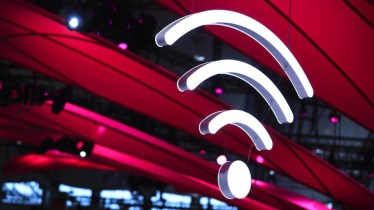The Broadband India Forum (BIF), which represents technology companies, has alleged that Bharat 6G Alliance, a working group announced by the department of telecommunications (DoT) for 6G, is favouring telcos for the allocation of the 6 GHz band in the range of 5925-7125 MHz.
The reason for the argument can be attributed to a report on spectrum roadmap for 6G, prepared by the DoT working group, wherein it has removed the section on delicensing of the 6 GHz band for Wi-Fi. Instead, the group has advocated for its use of 5G and 6G services, sources said.
Telcos and tech firms have always been divided on the 6 GHz band. While the telcos want the band to boost their 5G services, BIF wants the same to be given for public Wi-Fi as it is vital for economic growth.
In a letter to David Koilpillai, chair of Bharat 6G Alliance Spectrum Working Group, BIF president TV Ramachandran said, “the report is completely out of sync with PM’s vision of Bharat 6G”.
Notably, the Bharat 6G vision document released last year, had envisaged 50 million Wi-Fi hotspots and said the lower 6GHz band to be delicensed to facilitate development and growth of 6G.
Ramachandran said BIF’s inputs during the drafting group meetings regarding the importance and need to recognise 6GHz as a priority spectrum band for modern & advanced Wi-Fi (Wi-Fi 6E & 7) have been ignored by the group.
Notably, the band is delicenced in 84 countries worldwide.
According to BIF, India is a price sensitive market and the 6GHz band for Wi-Fi is absolutely essential for the spread of affordable and good quality broadband for all, and usurping it fully for the purpose of IMT goes against the public interest and is against national priority.
By assigning the 6GHz band for Wi-Fi, India has a chance to provide 5G like service to the unconnected and under connected masses in the country, Ramachandran said in the letter. He added that as many as 15 powerful and data-backed reasons have been ignored by the 6G group.
Currently, the complete 6 GHz band is being used by Indian Space Research Organisation (Isro) for satellite operations, and there are possibilities that spectrum if given for mobile services might interfere with the satellites, whereas WiFi is not expected to interfere because of its low power, experts said.
“BIF feels duty-bound to exercise its right to be heard and issue this dissent note…we do not agree with the proposed position taken on 6 GHz,” it said.
At the World Radiocommunication Conference (WRC) in Dubai last year, the International Telecommunication Union (ITU) along with member countries identified upper 6 GHz band ( 6425-7025 MHz ) for mobile services only in Region 1 (includes Europe, Middle East and Africa) with appropriate safety mask, which is a guard band to not interfere with satellites.
On the other hand, India (part of Region 3) has decided not to open up the band till co-existence studies are carried out between IMT (international mobile telecommunications) and satellite. The government has time till 2027 to arrive at a decision after conducting studies.
The government will decide on whether to allocate a portion of the 6 GHz band (the upper part from 6425-7025 MHz), for telecom operators, only after conducting co-existence studies of the band with satellites.
On the other hand, telcos are of the view that the allocation of spectrum in 6 GHz band without auction would result in a potential loss of over Rs 3 lakh crore to the national exchequer.
The tussle over the 6 GHz spectrum band between the telecom operators and technology firms has led the DoT to delay its allocation to either. The band will continue to stay with the Isro for satellite purposes till the time the government is able to resolve the tiff between the telcos and tech players like Microsoft, Google, Amazon, etc.
